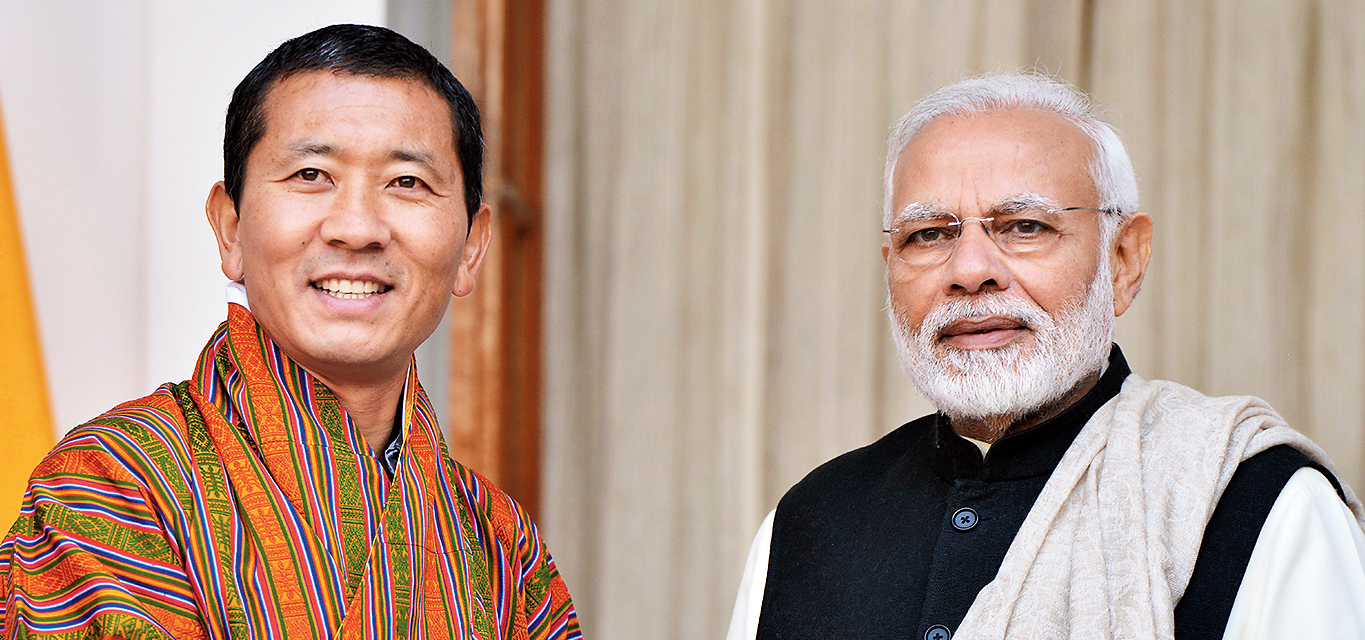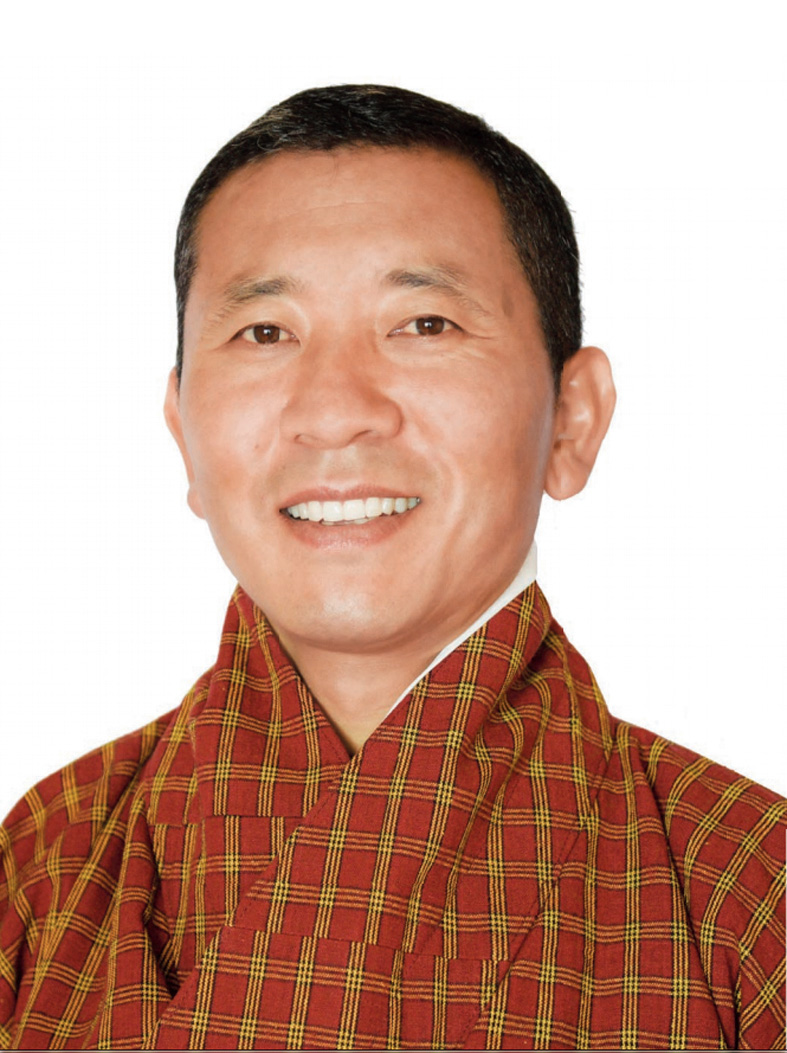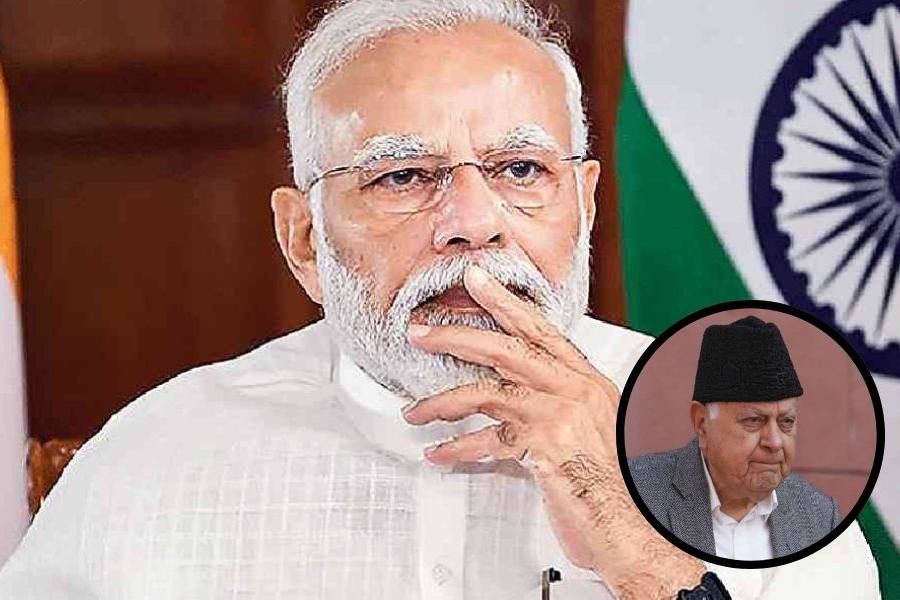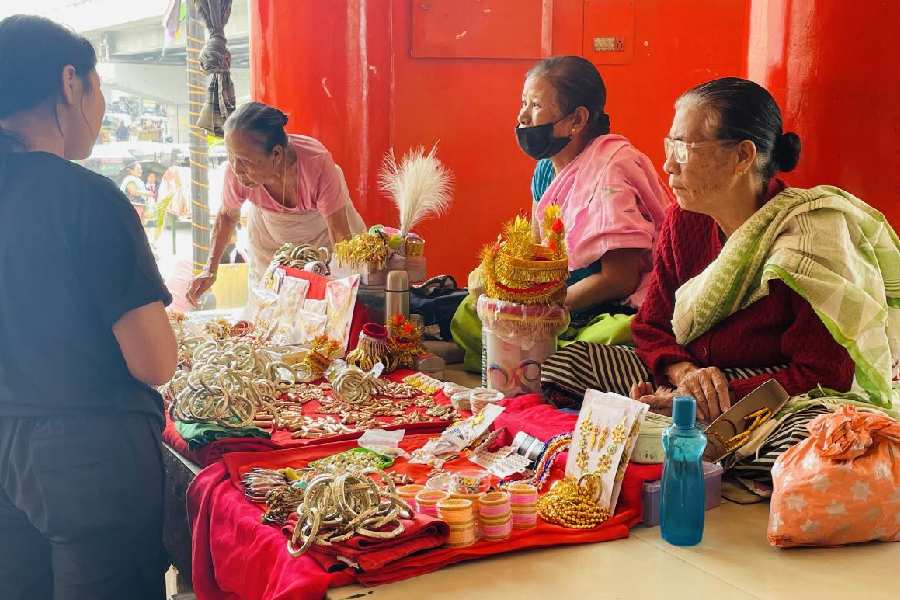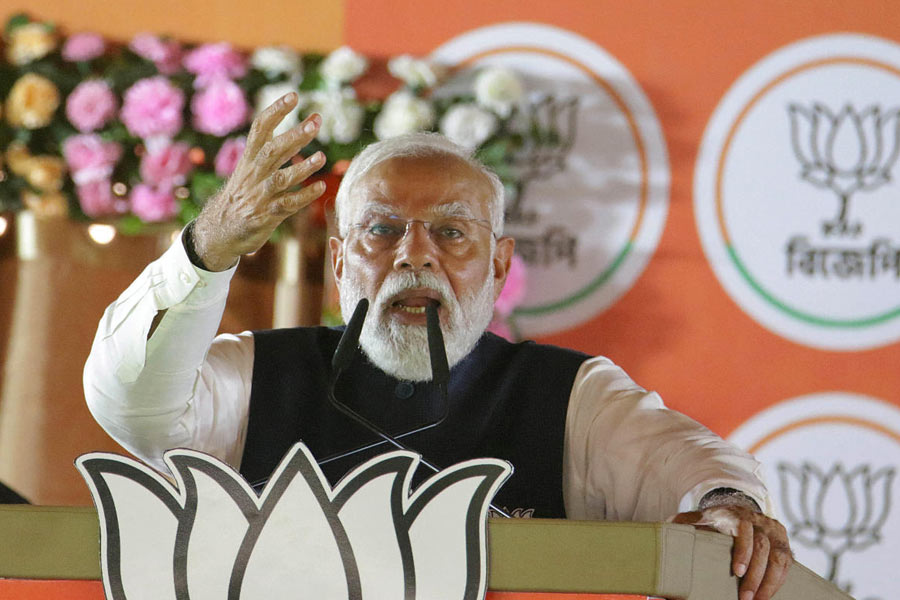Flagging self-reliance, Bhutan on Friday pressed for fair tariff for the Mangdechhu power project being built with Indian help instead of asking New Delhi to enhance financial assistance for the mountain kingdom’s 12th five-year plan.
Consequently, Prime Minister Narendra Modi announced that Rs 4,500 crore would be given to Bhutan as aide for the 12th plan after his bilateral engagement with Bhutanese Premier Lotay Tshring. This is exactly the amount India had pledged to Bhutan in the 11th plan though the plan size this time is much bigger.
During discussions on the 12th plan over the past year, India had offered more financial help. But Bhutan held its ground in demanding a better rate for the power generated by the Mangdechhu project, arguing that this would facilitate internal generation of funds to finance the 12th plan.
The 720MW Mangdechhu project is one of the 10 hydroelectric projects planned under the Bhutan government’s initiative to generate 10,000MW hydropower by 2020 with Indian support. Mangdechhu is scheduled to begin production in a month and according to reports in the Bhutanese media, the two sides could not agree on a mutual rate despite over half a dozen meetings.
There was no official word from either side on whether the two Premiers were able to break the deadlock. In his statement to the media, Modi said: “We now have agreement also on the tariff of this project”. No details were, however, offered.
The otherwise detailed joint statement also did not go into the specifics, stating that the two Premiers welcomed the “mutually beneficial understanding reached between the two sides on the tariff for the export of surplus power from the Mangdechhu project in Bhutan to India”.
Given China’s expanding footprint in the region — courtesy its deep pockets — there is concern in India that Bhutan’s avowed attempt at weaning itself from Indian assistance is part of an effort to get into Beijing’s corner.
However, sources maintained that developments in the neighbourhood vis-à-vis Chinese presence should be seen in the global context where practically every big country is losing its exclusive dominance in its sphere of influence; be it the US in Latin America or Russia in Eastern Europe and amid countries that were part of the USSR.
Even China, they point out, had no clue that the Americans were talking to the North Koreans till it was out in the open.
“To suggest that any one country is ceding space is to ignore that across the world, as globalisation is taking place and its means to spread influence has increased, it is no longer a situation where any country will have exclusive zones of influence in its neighbourhood,” a source said.

